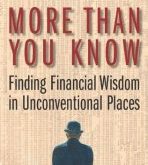from Blair Fix, Jonathan Nitzan and Shimshon Bichler To reiterate, the base-year problem leads to uncertainty in the calculation of real GDP. But instead of openly reporting this uncertainty, government economists have devised a “fix”. Rather than using a single base year, they “chain” together many adjacent base years. This is a bit like a moving average. They calculate the growth of real GDP between consecutive years, using the first year in each pair as the base, and then “chain”...
Read More »WAKING UP: What’s happening with the economy? Dean Baker gives the update (August 2, 2019)
There was major economic news this week with the Senate passing a major budget deal that lifts that debt ceiling, and the Fed announcing it will cut interest rates. We rely on the media to tell us what we need to know about how these developments will impact our day to day lives, but the more mainstream outlets tend to give more misinformation than anything else. That’s why we have on our new regular guest, Dean Baker here to help us parse out the facts of what’s happening with the economy....
Read More »WAKING UP: What’s happening with the economy? Dean Baker gives the update (August 2, 2019)
There was major economic news this week with the Senate passing a major budget deal that lifts that debt ceiling, and the Fed announcing it will cut interest rates. We rely on the media to tell us what we need to know about how these developments will impact our day to day lives, but the more mainstream outlets tend to give more misinformation than anything else. That’s why we have on our new regular guest, Dean Baker here to help us parse out the facts of what’s happening with...
Read More »Game Theory and Operations Research lacked substantiated applications in social, political and economic fields.
from Richard Vahrenkamp Since 1945, the United States had experienced a unique innovation push with the computer, the nuclear weapon, new air combat weapons and the transistor within just a few years. These innovations were accompanied by Game Theory and Operations Research in the academic field. Widely–held is the view that computers supplemented the mathematical concepts of Game Theory and Operations Research and gave these fields a fresh impulse. Together, they established the view of...
Read More »Non-normal normality
from Lars Syll Asset price distributions are of great practical significance for portfolio managers. Standard finance theory assumes that asset price changes follow a normal distribution—the well-known bell curve. That this assumption is roughly accurate most of the time allows analysts to use very robust probability statistics. For example, for a sample that follows a normal distribution, you can identify the population average and characterize the likelihood of variance from that...
Read More »Number Facts & Number Fictions
from Asad Zaman Excerpt from: Real Statistics (3/4) Statistics as Rhetoric {Preliminary material explains that conventional approach statistics separates theory and application — the job of ths statistician is to analyze numbers – without knowing where the come from. The job of the Field Expert is to use objective statistical analysis of numbers to get better understanding of the realities which generate the numbers. In “Real Statistics”, we assert that these two tasks cannot be...
Read More »The biggest problem in science
from Lars Syll There’s a huge debate going on in social science right now. The question is simple, and strikes near the heart of all research: What counts as solid evidence? … Prominent statisticians, psychologists, economists, sociologists, political scientists, biomedical researchers, and others … argue that results should only be deemed “statistically significant” if they pass a higher threshold. “We propose a change to P< 0.005,” the authors write. “This simple step would...
Read More »Why is Facebook, the world’s largest publisher, immune to publishing laws?
from Dean Baker Mark Zuckerberg may not think he needs a new job, but he does. It’s long past time Facebook be classified as a publisher, where it can be held responsible for the content that appears in posts on its system. The issue here is the special exemption to liability that Facebook and other internet platforms get from Section 230 of the Communications Decency Act of 1996. This law was passed in the early days of the internet and was intended to set up rules for governing...
Read More »Bringing science into economics must necessarily entail measurements in the scientific units.
from Ikonoclast The only real science is hard science; namely physics, chemistry and biology. The rest is not science. This is not to insist on mere scientism nor is it to insist that other subjects are worthless. It is simply to insist on the precision of definition for which those (mistakenly) arguing for precise science and mathematics in economics are in effect calling. Those calling for precise science and mathematics in economics become hoist on their own petard if they use, at any...
Read More »Arrow-Debreu and the Bourbaki illusion of rigour
from Lars Syll By the time that we have arrived at the peak first climbed by Arrow and Debreu, the central question boils down to something rather simple. We can phrase the question in the context of an exchange economy, but producers can be, and are, incorporated in the model. There is a rather arid economic environment referred to as a purely competitive market in which individuals receive signals as to the prices of all goods. All the individuals have preferences over all bundles of...
Read More » Real-World Economics Review
Real-World Economics Review





